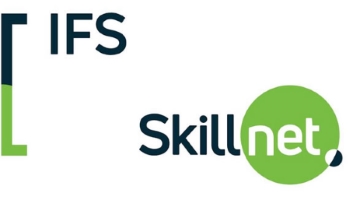Start Dates: TBC
Duration: 3 Days
Full Fee: €1500
Network Members Fee: €910
Programme overview
This 3-day course is suitable for people who have already successfully completed the standard 5-day Green Belt training with Trigraph – see https://trigraph.ie/courses/Lean-Six-Sigma-Green-Belt-Certification/
Lean Six Sigma (LSS) is a continuous improvement methodology that focuses on the elimination of waste and reduction of variation from manufacturing, service and design processes. The Lean methodology aims at reducing non-value activities and cycle times while creating value for customers. Six Sigma identifies and reduces variability, improving overall quality. LSS can reduce your costs and help you retain and even gain more customers.
LSS prescribes an improvement process known as DMAIC (Define—Measure—Analyze—Improve—Control). However, its application is limited to improving existing processes. It doesn’t address the design of new products, services, or processes.
For developing a new product, service or process, there’s a modified version called DFSS (Design for Six Sigma). The process most often used in DFSS is called DMADV (Define—Measure—Analyze—Design—Verify).
Learning outcomes
DFSS is not a single road map, but an embodiment of a menu of possible strategies, tactics and tools based on proven strategies. Learn to lead a Design for Six Sigma (DFSS) team through the define-measure-analyze-design-verify (DMADV) phases to produce tollgate deliverables using the proper tools, such as quality function deployment (QFD), that help to further refine our understanding of customer needs.
Learn how projects could be identified as missed goals are uncovered
understand that over time the customer’s expectations will grow
learn how we can systematically tie processes and their output to the elements critical to the customers’ satisfaction.
Be introduced to tools, such as quality function deployment (QFD), that help us further refine our understanding of customer needs and how our processes meet their expectations examine potential ways to measure the success of DFSSUpon successfully completing the course and Quizzes, you will receive a ‘Design for Six Sigma’ Certificate.
Who is the course for
It is a pre-requisite that participants possess a Lean Six Sigma Green / Black Belt or equivalent and have identified a significant improvement project that they will implement over the duration of the course.
Modules
Day 1
Introduction – from 9:00 to 11:00
House keeping and how to use this course and Quizzes
Introducing Design for Six Sigma
DFSS and DMAIC
Various groups of DFSS
Quiz
Define – from 11:15 to 13:00
Introduction
Project selection
Project Charter
Project Tracking toolset
VOC and Understanding the Customer
Surveys
Quiz
Measure – from 14:00 to 16:00
Introduction
Data tracking toolset
Data models
Day 2
Concepts – from 9:00 to 11:00
Introduction
Quality Function Deployment
Core principles and Pugh Matrix
Benchmarking
Process Capability
Quiz
Analyse – from 11:15 to 13:00
Statistical Process Control
Design – from 14:00 to 16:00
Introduction
Analysing designs
QFD
Predictive Analysis (Regression, Monte Carlo Simulation)
FMEA (Failure mode & effect analysis)
Process reliability
Exercise & Quiz
Day 3
Design – from 9:00 – 13:00
Building a process Model
Predicting process performing using Simulation
Practical Monte Carlo Simulation and Regression
Customer Specification optimisation
Exercise & Quiz
Verify – from 14:00 to 16:00
Rollout Pilot
Measure Pilot results and adjust
Control Plan
Tracking Dashboard
Final Quiz and course completion
Trainer Profile



